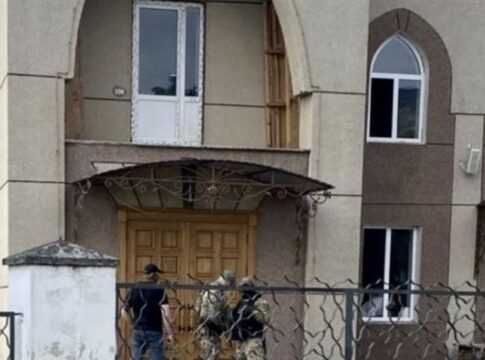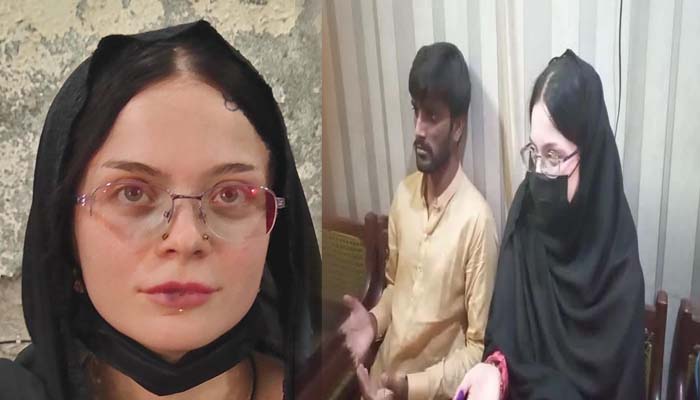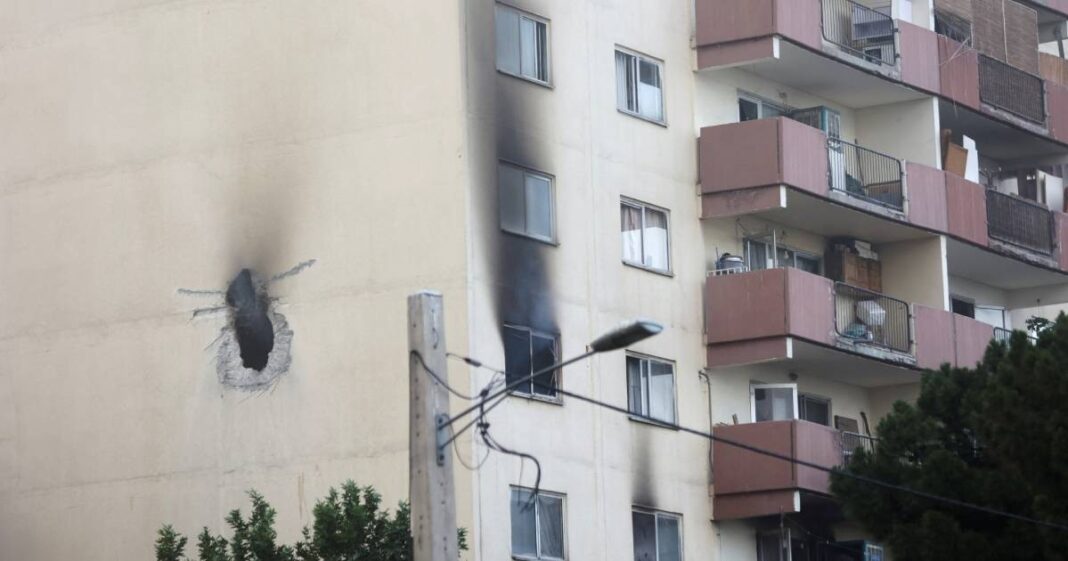In yet another case highlighting religious repression in Russian-occupied Crimea, Idris Yurdamov, the head of the independent Muslim community Eski Qirim (Old Crimea), has been charged with administrative offenses linked to so-called “extremist literature.”
The charges were initiated by Russia’s “Centre for Countering Extremism” after a routine inspection at the Zubeir-Dzhami Mosque on June 5. While officials initially claimed it was a standard check, Yurdamov was later handed a formal charge on June 11. According to Crimean Solidarity, he was summoned under Article 20.29 of Russia’s Code of Administrative Offences, which penalizes the dissemination of banned extremist materials.
What makes the accusation especially questionable is that the Zubeir-Dzhami Mosque has been under the control of the Spiritual Directorate of Muslims of Crimea for several months. Thus, any materials allegedly discovered during the inspection have no clear connection to Yurdamov or the Eski Qirim community.
The official document served to Yurdamov was signed by Ruslan Shambzaov, head of the “Centre,” whose name has been associated with repeated targeting of Crimean Tatar activists, journalists, and religious leaders. Human rights groups frequently criticize the center for fabricating charges and manipulating evidence to suppress dissent and control independent religious institutions.
This latest move appears to follow a pattern of harassment. Earlier in 2024, searches were conducted at the homes of Yurdamov and Imam Izet Saifullin. While Yurdamov was released, Saifullin was prosecuted for so-called “illegal missionary activities”—a charge often used by Russian authorities against imams operating independently of state-approved religious bodies.
In March 2024, Eski Qirim was once again targeted. Authorities accused the community of being associated with the Zubeir-Dzhami Mosque where three books, allegedly from Russia’s banned literature list, were “discovered.” Community leader Yurdamov firmly denied any knowledge of the books, and there is widespread suspicion that these materials were planted—an accusation consistent with previous operations by Russia’s FSB.
Despite the lack of credible evidence, the occupation “Kirovske District Court” fined the Eski Qirim community 100,000 rubles, a decision later upheld by the “High Court.”
Speaking on the matter, both Yurdamov and legal advocate Ruslan Kyamilev stated unequivocally that the charges were manufactured as part of a broader strategy to force the independent Muslim community out of the mosque.
The targeting of Eski Qirim mirrors similar efforts by the pro-Russian Spiritual Directorate of Muslims of Crimea, led by Mufti Emirali Ablayev. Under Ablayev’s leadership, the Directorate has aligned itself with the occupying authorities, systematically undermining independent Islamic communities across the peninsula in exchange for political favor and institutional dominance.
Multiple independent Muslim communities have reported similar patterns of persecution, ranging from administrative charges and fines to raids and public smear campaigns. The aim, critics argue, is clear: to suppress any religious organization that does not submit to the Kremlin-aligned Directorate’s control.
As Crimean human rights observers continue to document these cases, international calls are growing for the protection of religious freedom in occupied territories. The case of Idris Yurdamov and the Eski Qirim community stands as a stark reminder of the ongoing efforts to erase independent religious identities under Russian rule.



